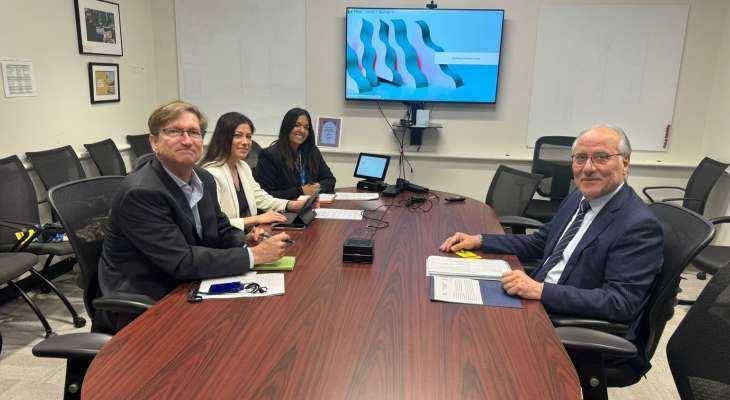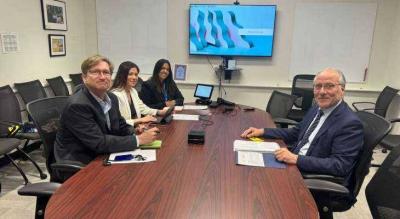The Minister of Education and Higher Education in the caretaker government, Abbas Al-Halabi, began his working visit to Washington with a meeting at the headquarters of the U.S. Agency for International Development (USAID) with the agency's Technical Support Office Director for the Middle East, David Branz, and Educational Advisor Rena Dalla. He was accompanied by the Lebanese Consul in Washington, Dana Ghazli, and Zina Salameh, the person responsible for educational programs at the agency in Beirut.
Al-Halabi provided an extensive presentation on "the educational situation in Lebanon and the multiple crises facing the sector," emphasizing "the close relationship that connects the Ministry of Education with the agency since the initial educational cooperation programs that began in 2010." He pointed out "the importance of this cooperation in educational development, especially through the projects 'My First Book' and 'My Second Book,'" reminding that he announced with the agency's representative in Beirut a few weeks ago the launch of the "My Third Book" project, which will run from 2023 to 2028. This project has been allocated funding of $97 million, which will be spent over these years to improve the quality of education, enhance the capabilities of the educational human resources, train, implement inclusion programs for individuals with special needs and learning difficulties in mainstream public schools, in addition to many components that elevate the level and quality of education.
Al-Halabi explained "the requirements of the plan formulated by the ministry and the compatibility of the program components with it, especially since the ministry's administration is increasingly moving towards adopting digitization, which requires significant funding for these trends." He also outlined "the reform plan being pursued by the ministry" and requested the agency "to stand alongside Lebanon in achieving these steps and reform programs due to their positive impact on the education sector in all its components."
The meeting, which lasted about an hour, provided an opportunity to exchange views on many of these components and trends. During this time, the American side affirmed its support for education in Lebanon, indicating that the agency's programs are predefined, but they took into account the presentation provided by Al-Halabi to consider aligning it with the development of the implementation of joint educational projects.




